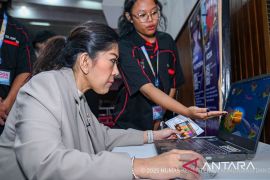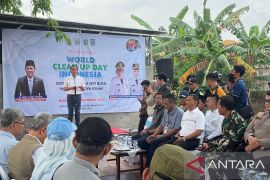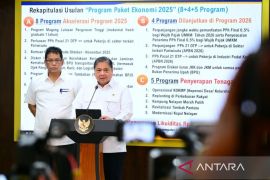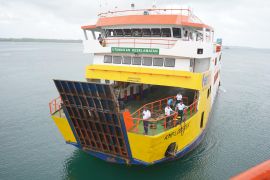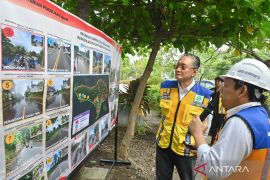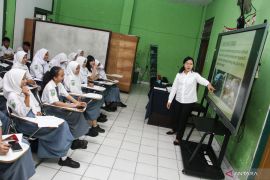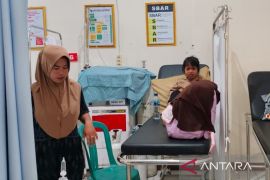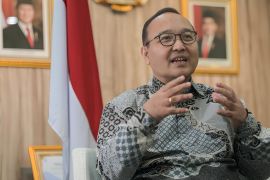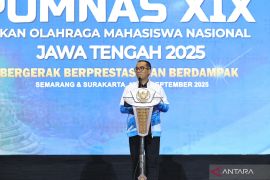"Most regions in Java Island, mainly in Sangiran and Pacitan, have served as living laboratories for studies on human evolution. Hence, in order to step up our efforts to study these heritages, the Indonesian government is currently developing a center for human evolution, adaptation, and dispersal studies in Southeast Asia," Farid explained, during the sidelines of an exhibition jointly hosted by Indonesia and Georgia at the National Museum, in Jakarta.
Initiated by the Indonesian government and supported by other Southeast Asian countries, such as the Philippines, Malaysia, Singapore, and Thailand, the center will serve as a single platform for researches, scientific publications, conservation programs, as well as experts and students exchanges, he noted.
"This center would link all research and other scientific activities on human evolution. The Indonesian government has realized that a platform for collaboration in this subject is important," Farid reiterated.
According to the director general, the Paris-based United Nations Educational, Scientific and Cultural Organization (UNESCO) will host a general conference next November to discuss Indonesias proposal on establishing the human evolution research center in Southeast Asia.
"If UNESCO approves this (human evolution research) center, it would receive large benefits, including the vast network of experts, some important access, and other technical supports. However, if the UN body decides otherwise, the center will continue to operate, backed by Indonesian governments state-fund," he stated.
During the separate occasion, the ministrys cultural heritage and museum director, Harry Widianto, remarked that Indonesia has planned to establish the center since three years ago.
"We had submitted the proposal (on establishing the center) to UNESCO three years ago. The UN experts had reviewed the document, and they had reported to the commission. Based on the report, the UNESCO member countries would discuss our proposal at a general conference next month," he remarked, while adding that the center is planned to be fully operational by 2018.
Widianto further explained that Indonesia would be the first country in Southeast Asia to establish a center for human evolution studies.
"Apart from us, some similar centers have operated in Spain for the European region, Tanzania and Kenya in East Africa, Johannesburg in South Africa, and China for East Asia," he explained.
Widianto added that the main objective of the research center is the joint launch of all activities on human evolution studies with other experts in an international research framework.
"Any projects conducted (in the research center) would be linked to other sites overseas, such as in Spain and several African countries. (*)
Editor: Heru Purwanto
Copyright © ANTARA 2017
